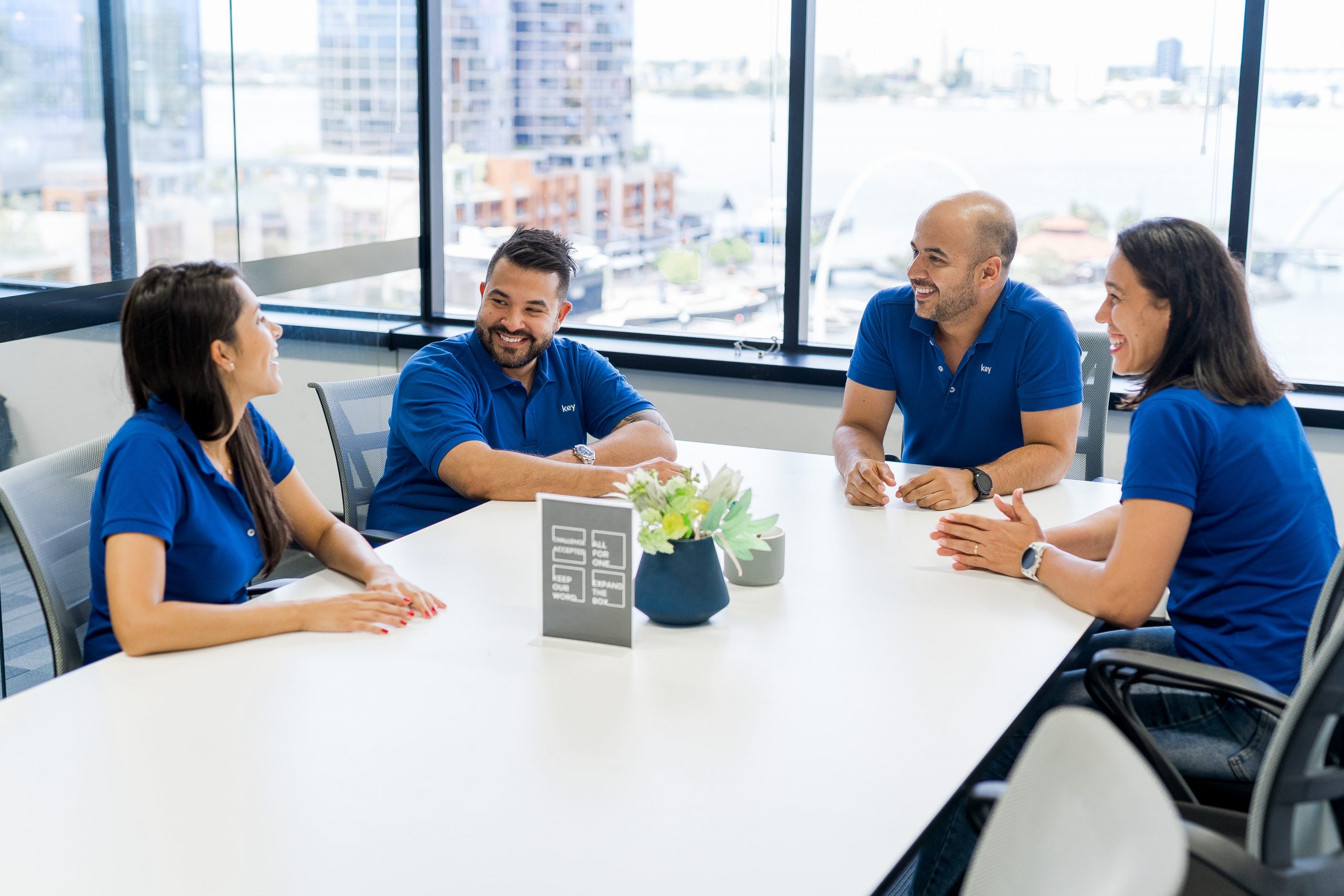If you’re like me, you’re always on the lookout for new and innovative ways to become a better leader. You may have read articles on how to be more organised or efficient, develop new skills, and how to be a team player, but what about those times when things don’t go according to plan?
As a member of the PitCrew at Key, we are responsible for wearing many different hats. In this blog, we will share the different hats that a PitCrew member at Key wear and some tips on how to effectively wear them all. So, Buckle up – it’s going to be a bumpy ride!
So, what is the Pitcrew, and what do we do, you may be asking?
The PitCrew is a team of Project Managers and Growth Specialists leading a team of Engineers within Key. We work on various projects, most notably the optimisation and implementation of improvement opportunities at our client’s processing facilities.
We at the PitCrew are responsible for the following:
-Project management – We create and manage project plans, identify risks and mitigation strategies, track milestones and deliverables, and report progress to our clients.
-Growth strategy – We work with our clients to identify and implement opportunities for growth and efficiency gains.
-Process improvement – We identify areas of opportunity within our client’s process and work with them to implement corrective actions.
-Team management – We manage and motivate our team of engineers, ensuring that they are able to work effectively and efficiently to deliver results.
-Building new client relationships and new markets – Researching, identifying and targeting new sales opportunities -Generating leads and arranging meetings with potential customers -Preparing and delivering presentations and demonstrations of our services.
-Maintaining existing client relationships – Ensuring our clients are always satisfied with our services by building strong relationships while representing our company in a professional manner.
-Engineering leadership. Responsible for the professional development of our people, making sure they have the right tools and skill sets to meet clients’ needs. Responsible for providing leadership expertise and oversight for our projects.
-Customer support. Providing support to our clients, assisting them with any queries they may have.
As you can see, we wear many different hats at Key. Let’s take a closer look at some of these hats, their importance and how to wear them effectively.


The importance of wearing many hats
There is an old saying that goes, “If you want something done, ask a busy person to do it.” This is because people who wear many hats are usually very good at managing their time and resources. They know how to prioritise and delegate tasks in order to get the most important things done. And while they may not be experts in every area, they are usually quick learners who are always looking for new challenges.
At Key and in today’s fast-paced world, the ability to wear many hats is increasingly important. Leaders need to be able to wear many hats in order to be successful. They need to be able to juggle multiple priorities and make quick decisions. They also need to have a deep understanding of their team’s strengths and weaknesses so that they can delegate tasks effectively. People who are good at wearing many hats tend to be natural leaders.
So if you are looking for a way to stand out from the crowd, start by learning how to wear many hats. It is a skill that will come in handy in all aspects of your life.
How to be an effective leader
There is no one answer to the question of how to be an effective leader. That is because leadership is about more than just giving orders or delegating tasks – it is also about guidance, motivation, and project management. That’s why at Key, we understand it is important to be able to adapt your leadership style to the needs of your team or organisation and to have a clear vision for what you are trying to achieve. However, there are some universal qualities that all great leaders share. Here are four of our recommended tips on how to be an effective leader:
- Be decisive. When you are in charge, people look to you for guidance and direction. If you are constantly second-guessing yourself or changing your mind, it will erode their confidence in you.
- Be able to build a team. A good leader knows how to put together a group of people with complementary skills and personalities and how to get them working together towards a common goal.
- Be organised and efficient. Part of being a good leader is being able to manage both your own time and the time of your team. That means having a clear plan and efficient methods for executing it.
- Be passionate. If you are not passionate about what you are doing, it will be hard to inspire others to follow your lead. Great leaders are those who believe in their vision and are willing to do whatever it takes to make it a reality.
Tips for developing new skills
No one ever became a master overnight. It takes time, dedication, and practice to develop new skills. And even then, there is always room for improvement. At Key, we recognise that this is a continuous process, which is why we always strive to acquire new skills.
So if you are looking to develop new skills, here are a few tips to get you started on the right foot.
First and foremost, it is important to have a positive attitude. Learning new things can be daunting, but it is important to remember that everyone starts from square one. So be patient with yourself and focus on the progress you are making rather than dwelling on mistakes.
Secondly, do not be afraid to ask for help. No one expects you to be an expert from the get-go, so reach out to someone who can offer guidance and support. Whether it is a friend, family member, or professional mentor, seeking help is a great way to make sure you are on the right track.
Finally, remember to practise! The only way to get better at something is to put in the hours and work at it consistently. So find some time in your schedule to devote to skill development and stick with it. By following these tips, you will be well on your way to becoming a pro in no time.
How to be a team player
Being a team player is about more than just showing up to practice on time. It is about working together to promote team ideas and supporting others to reach their goals. When everyone is working towards the same goal, it is important to be encouraging and positive. This does not mean that you have to be best friends with everyone on the team, but it does mean being respectful and flexible. It also means being willing to put the team first, even if it means making sacrifices. The team at Key understands and knows that, in the end, the success of the team is more important than any individual contribution. By working together and supporting each other, teams can achieve amazing things.
How to stay organised and efficient
Whether you are a student trying to keep on top of your assignments or a working professional dealing with a never-ending to-do list, we could all use a little help when it comes to staying organised and efficient. At the PitCrew, we need to juggle a lot of things all at once, which is why by focusing on these activities, you will be on your way to being more efficient and organised:
– Prioritise: Make a list of everything that needs to be done and then rank them in order of importance. This will help you focus on the most important tasks first.
– Set deadlines: Giving yourself a deadline for each task will help you stay on track and avoid procrastination.
– Break it down: If a task seems overwhelming, break it down into smaller, more manageable parts. This will make it seem less daunting and more achievable.
– Take breaks: It is important to take breaks every now and then to avoid burnout. Get up and stretch, grab a coffee or take a walk around the block. A few minutes of fresh air can do wonders for your productivity levels.
– Keep it simple: Do not overcomplicate things. Sometimes the simplest solution is the best solution.
Hopefully, these tips can help you get started on the path to being more organised and efficient. After all, even small changes can make a big difference in the long run.
Leaders are often asked to wear many hats. They have to be able to juggle a lot of different responsibilities and tasks at the same time. While it can seem like a daunting task, it is possible to become an effective leader by following some simple tips. Develop new skills, learn how to be a team player, and stay organised and efficient. These steps will help you take on any challenge that comes your way.
